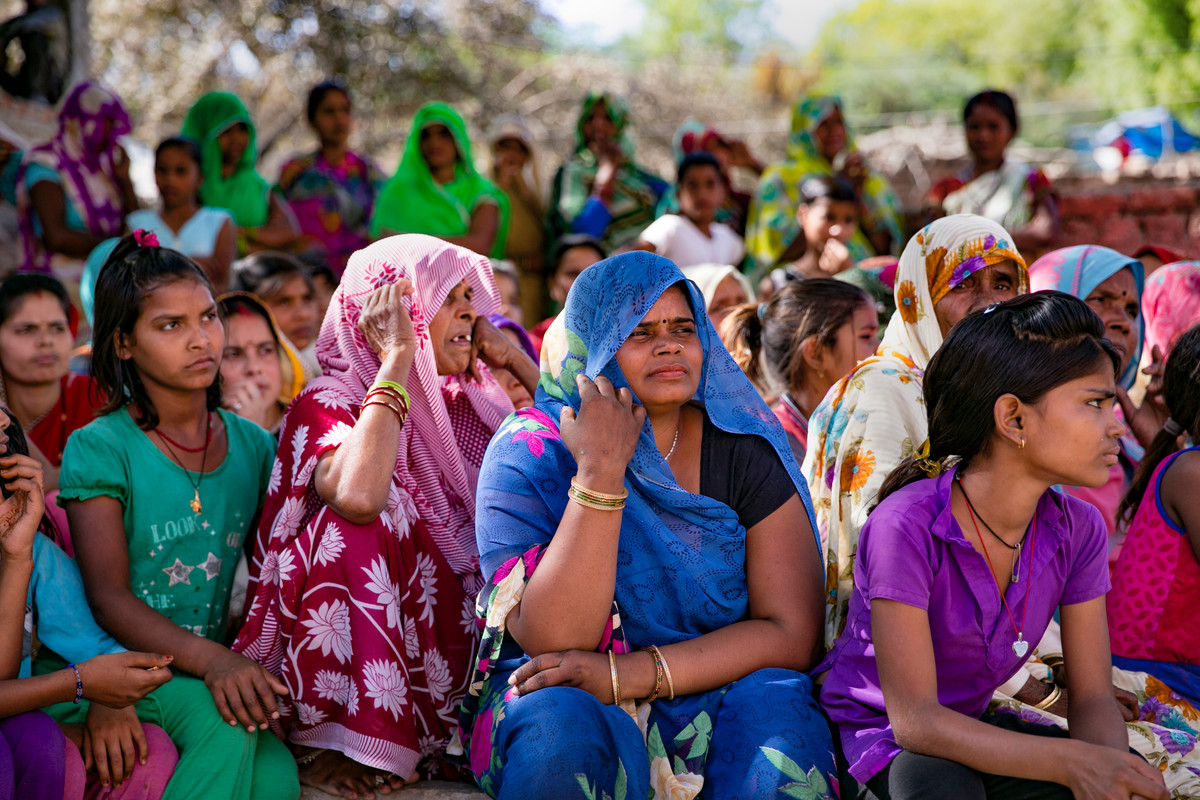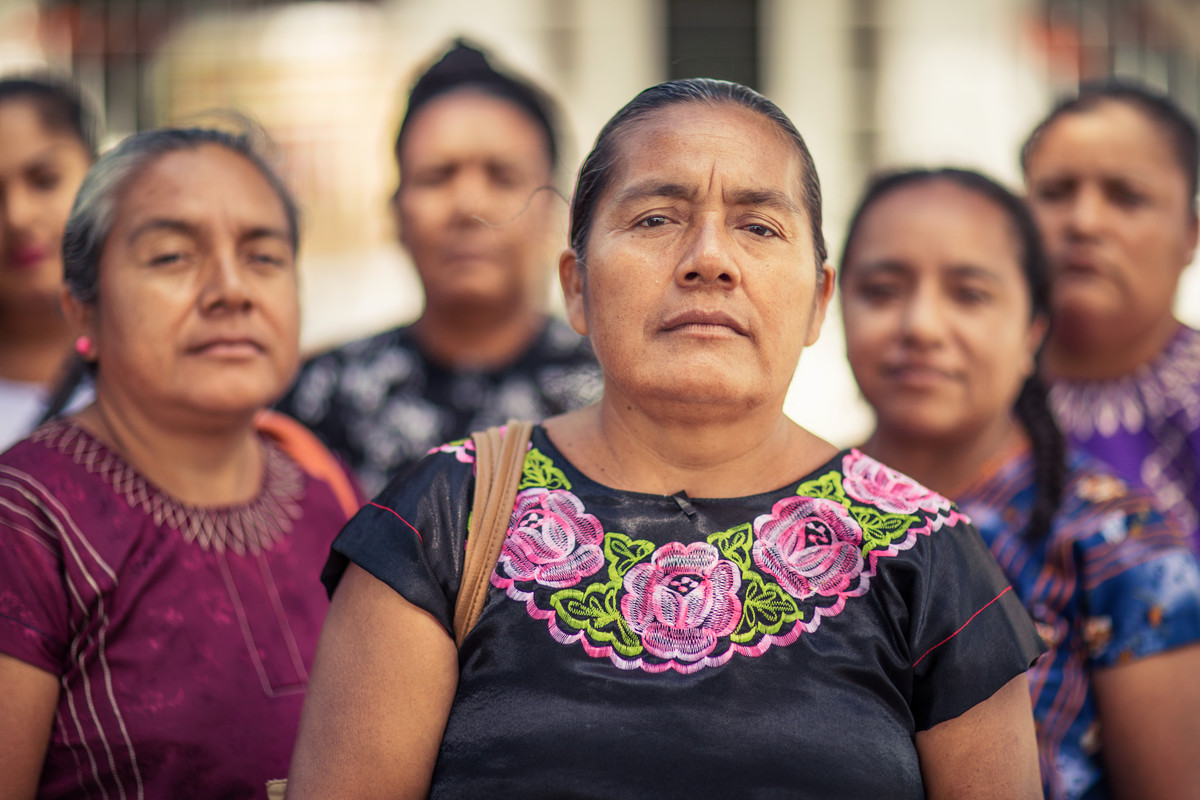
Spotlight
A selection of news from across the Federation

IPPF Statement on the 68th session of the Commission on the Status of Women (CSW)
IPPF welcomes the agreed conclusions of the 68th session of the Commission on the Status of Women (CSW), on the theme of “Accelerating the achievement of gender equality and the empowerment of all women and girls by addressing poverty and strengthening institutions and financing with a gender perspective”. IPPF actively engaged in the process by providing technical inputs to Member States, raising awareness about the interlinkages between SRHR, poverty, gender equality and the empowerment and human rights of all women and girls.
Filter our news by:

| 29 December 2020
A historic moment: Argentina legalizes abortion
The International Planned Parenthood Federation (IPPF) welcomes the news of a historic decision by the Senate of the Republic of Argentina approving a national law on legal, safe and free abortion. The law will allow all women and adolescents access to abortion care for up to 14 weeks of pregnancy. IPPF celebrates the collective effort of thousands of activists, feminists, and grassroots organizations that continued to fight for access to safe and legal abortion care. With the approval of this law, Argentina will become the fourth country in Latin America to legalize abortion care, joining Cuba, Guyana, and Uruguay. IPPF’s Director General Dr Alvaro Bermejo said: ‘This historic moment cannot be understated; a similar bill was put forth to the Senate in 2018 and was narrowly defeated. But the fire in the hearts and minds of hundreds of thousands of activists from all walks of life, was burning, and they continued to fight. The human right for all women, girls, and gender non-conforming people to have autonomy over their bodies to decide whether to be pregnant or not, is now a reality for millions of Argentinians. "I hope that the Argentinian Green Wave becomes a spark for the rest of Latin America and the Caribbean and inspires countries to change their abortion laws, as millions of women and girls still lack access to safe and legal abortion in the region and are coerced to risk their lives by turning to unsafe abortions.’ The law includes: Abortion care deadlines: Abortion care is available for up to 14 weeks of gestation. Once an abortion care service is requested, it must be performed within 10 days. Comprehensive and free coverage: Abortion care must be included in the Compulsory Medical Program (PMO) to guarantee integral and free coverage in all Argentinian health sub-systems. Informed consent: Consent in writing must be provided by people seeking an abortion. Anyone at the age of consent (16 years old) does not need to be accompanied by an adult. Anyone under the age of 13 years old, will require the assistance of at least one parent or legal representative. ‘Conscientious objection’ and referral to guarantee abortion: Those who deny abortion care based on ‘conscientious objection’ are required to refer the clients to another facility that will provide the service. The law stipulates that "in all cases, abortion care must be guaranteed" and that "the steps and costs associated with the referral and transfer shall be borne by the service that makes the referral". Kate Gilmore, chair of IPPF’s Board said: "Argentinian Green Wave, we thank you. Your persistence, bravery, solidarity, and compassion will continue inspiring us all to realize women’s right to safe and legal abortion care all over the world." Image credit: Gabriela Bacin Gemetro

| 18 November 2020
IPPF honours the Trans Day of Remembrance
On the Transgender Day of Remembrance (20 November 2020), IPPF remembers the transgender people whose lives have been lost globally to transphobic violence, and stands in solidarity in the fight for trans rights. This year the Trans Murder Monitoring (TMM) project added 350 trans and gender-diverse people to the list of people to be remembered worldwide. This project systematically monitors, collects and analyses reports of homicides of trans and gender-diverse people worldwide. The world needs to wake up and understand that transphobia and its violence is a destructive aggression of social prejudice that denies people their human rights. IPPF works to change laws in countries to support gender and sexual diversity. We spotlight the Indonesian Planned Parenthood Association (IPPA/PKBI) who are fighting for to halt the Penal Code revisions that criminalises and stigmatises gender and sexually diverse persons, including trans people. IPPA produced a short film "Emak Menolak", highlighting the challenges of trans people in Indonesia. Check it out below: IPPF will continue to fight and stand in solidarity with the trans community until their rights are realized and respected, because trans rights are human rights. Will you join us?

| 18 November 2020
IPPF welcomes the adoption of the UN General Assembly Third Committee resolutions on women and girls’ rights, gender equality and SRHR
IPPF welcomes the adoption of the UN General Assembly Third Committee resolutions on women and girls’ rights, gender equality and sexual and reproductive health and rights. The Third Committee is a critical intergovernmental space with the full membership of the United Nations (UN), which agrees on normative standards and frameworks on human rights, gender and sexual and reproductive health and rights. IPPF closely followed the negotiations on intensification of efforts to prevent and eliminate violence against women and girls, child early and forced marriage (CEFM), women and girls and COVID-19, intensification of efforts to prevent and eliminate Female Genital Mutilation (FGM), efforts to end obstetric fistula and trafficking of women and girls. IPPF applauds the resounding commitment of Member States to uphold the principles of gender equality, preventing and combating Sexual and Gender-Based Violence (SGBV), fulfilling women and girls’ rights, including SRHR, as demonstrated in the adoption of all gender-related resolutions and in the six separate cross-regional statements delivered on behalf of about 70 countries at the adoption sessions of the Committee. Despite attempts to weaken and/or risk the longstanding agreements made in Cairo, Beijing and in the Agenda 2030, the vast majority of the UN membership supported the adoption of the texts as negotiated. We deeply regret the call for a vote by the Russia Federation on the resolution addressing prevention and elimination of violence against women and girls that should enjoy political consensus given the global backdrop where levels of violence perpetrated against women and girls during the COVID-19 pandemic, specifically intimate partner violence are rising – also known as the ‘hidden pandemic’. Member States resoundingly adopted strong texts that acknowledged the impact of COVID-19 on increased levels of violence, CEFM and ensured coordinated and strong responses in responding to the sexual and reproductive health needs and rights of women and girls specifically during the pandemic. The resolution addressing the prevention and elimination of violence against women and girls makes fundamental calls for Governments to ensure women and girls’ access to justice, SRHR and comprehensive sexuality education, while recognizing Intimate Partner Violence (IPV) as the most prevalent and least visible form of violence against women across all social strata across the world.

| 07 November 2020
US Election 2020: The people of the United States have voted for change and progress
The International Planned Parenthood Federation (IPPF) congratulates US President-elect Joe Biden on his victory. It is hard to overstate the global damage to sexual and reproductive health and rights by the Trump administration, and the global effort and collaboration which will be required under President-elect Biden to undo the harm. The US Global Gag Rule remains the greatest of threats to sexual and reproductive healthcare. IPPF calls on President-elect Biden to keep to his word of signing an executive order on his first day in office to repeal the harmful Global Gag Rule aka the Mexico City Policy. Further to this, we are counting on the Biden administration to push for a permanent repeal to this policy so that the shadow of it no longer hangs over communities around the world. IPPF refused to sign the Global Gag Rule because it would not be coerced or threatened into abandoning its support for access to vital safe and legal abortion care for women around the world. The consequent loss of US funding for sexual and reproductive healthcare affected 53 projects in 32 countries, severely impacted proven programs that provided comprehensive sexual and reproductive health services for millions of people, especially women and girls, and marginalized communities. IPPF Director-General Dr Alvaro Bermejo said: “Today, the people of the United States have voted for change and progress. For the past four years, the United States has been governed by macho-politics, undermining the international standing of the US and its reputation as a global leader and champion of human rights. We very much look forward to working with the Biden administration and we will be pushing for the permanent repeal of the Global Gag Rule; and with that to ensuring that sexual and reproductive healthcare is a reality for everyone, everywhere.” Image source: Photo by Aaron Burden on Unsplash

| 05 August 2020
IPPF statement on Western Hemisphere Region
IPPF regrets the decision of the Western Hemisphere Region, taken by its Board, to withdraw from the Federation, and is deeply sorry to see a number of Member Associations from the region resign from IPPF. As the largest global Federation working on sexual and reproductive health and rights, in more than 160 countries, IPPF is committed to continuing to work in all parts of the Americas to provide healthcare and fight for sexual and reproductive freedom for women, girls, men, boys and all people of all gender identities. This is more urgent than ever during a health pandemic and with continued opposition to sexual care and rights from repressive conservative forces in the Americas and around the world. IPPF is completely open to all our current Western Hemisphere Region members remaining part of the global Federation while they also form a new regional relationship and pledges its continuous support to those in the region that have committed to remaining part of the Federation. Membership is voluntary and it is entirely up to individual members to decide on their own course. As a locally owned, globally connected movement however, IPPF has always believed that we are stronger together. Over the last fifteen months, IPPF has been on a journey of reform. It has changed by choice, for choice. It has worked in partnership with members, donors and its regulator to develop best practice safeguarding policies and processes. It has dealt with and continues to deal with any cases of unacceptable behaviour. A safeguarding system is in place across the entire Federation to allow clients, staff, volunteers and any individual to report concerns confidentially. In November last year reforms to IPPF’s governance and funding model were agreed unanimously at a General Assembly of member delegates drawn from every region, including Western Hemisphere. Unfortunately, the Board of Western Hemisphere Region felt it could no longer support this new model. Discussions between the region’s Board and IPPF’s Board on a way forward had been ongoing. We are sorry these will not now continue. IPPF has been a locally owned, globally connected Federation for 68 years, supporting all its members and the millions of women, girls and vulnerable clients they serve. That will not change, and we remain committed to working with members and partners across the globe.

| 23 July 2020
IPPF congratulates Dr Tlaleng Mofokeng on her appointment as the United Nations Special Rapporteur on the right to health
The International Planned Parenthood Federation (IPPF) warmly welcomes the appointment of Dr Tlaleng Mofokeng as the United Nations Special Rapporteur on the right of everyone to the enjoyment of the highest attainable standard of physical and mental health. Dr T, as she is known, is a South African doctor, women’s rights and sexual and reproductive health activist, and the author of the bestseller ‘Dr T: A Guide to Sexual Health and Pleasure’. She is a long-time and powerful advocate for women’s rights and has repeatedly highlighted the importance of access to safe abortion as part of comprehensive sexual and reproductive healthcare. IPPF Director-General Dr Alvaro Bermejo said: “IPPF is delighted at the news of Dr Mofokeng’s appointment and congratulates her most warmly. There is no one suited better to this position. As a provider of safe abortion care herself, Dr Mofokeng has seen what happens when it is denied to women by those who would coerce them against their will through a full pregnancy. It leads only to their suffering and preventable deaths. We know Dr Mofokeng will bring her extensive expertise in healthcare as well as her knowledge of how health is intrinsically linked to gender, socioeconomic and racial equality to this very important role. We wish her every success and offer IPPF’s unqualified support.” Image from She.Leads.Africa














